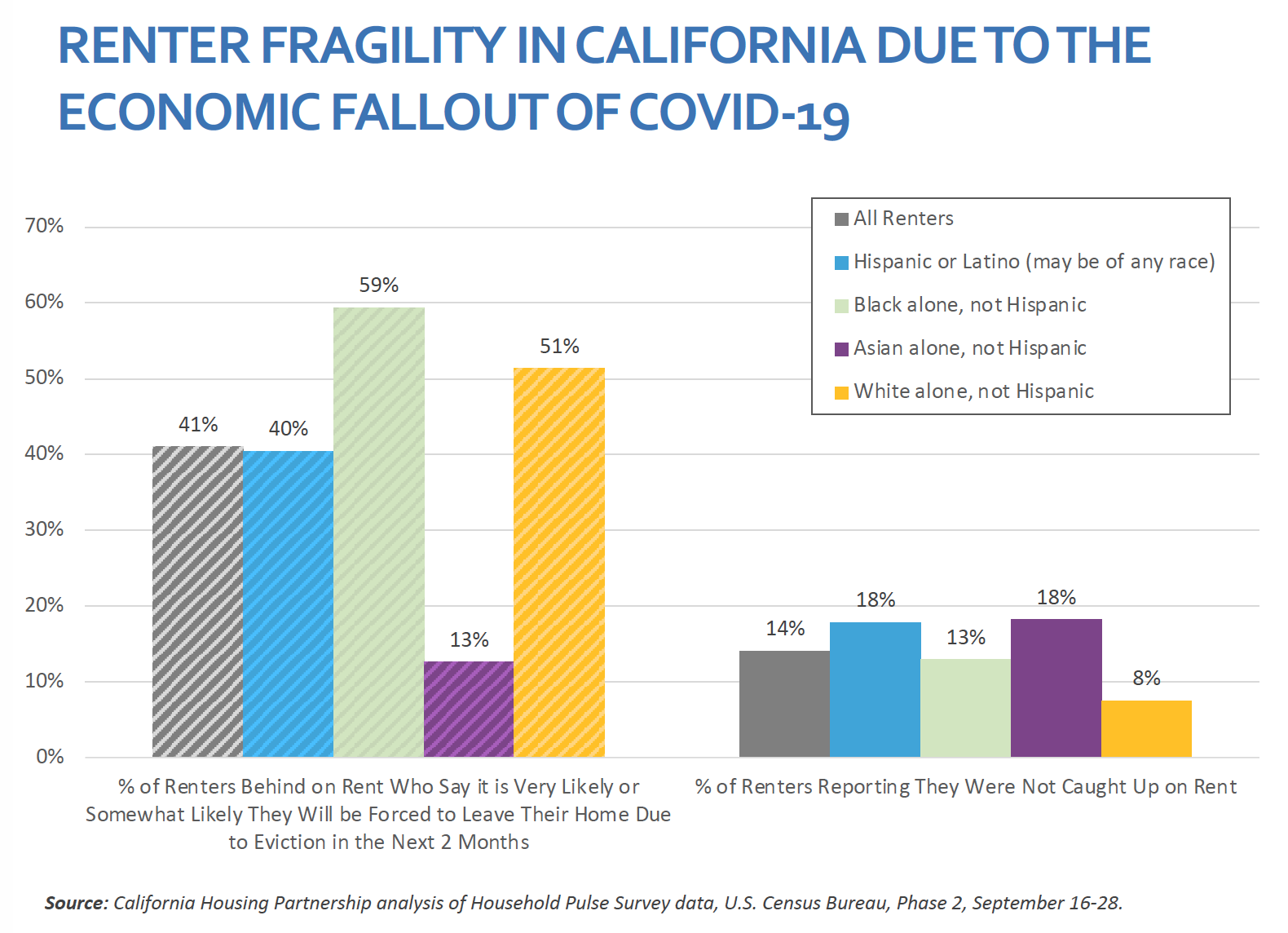
The Partnership’s Research Team has been closely tracking this data since the beginning of the summer. Each new week of data has further underscored the fact that the economic fallout from the COVID-19 pandemic continues to intensify the racial disparities in California’s housing crisis – including inequities that existed well before the pandemic. Our analysis of the survey’s most recent week of data finds that:
- 59% of Black renters who are behind on rent payments say it is very or somewhat likely they will be forced to leave their home due to eviction in the next two months compared with 41% of all California renters behind on rent payments.
- 14% of renters overall are behind on rent, but more than 18% of Latinx and Asian renters and 13% of Black renters are behind.
The Census Bureau will continue to release data from Phase 2 of the Household Pulse Survey through the end of October. At the Partnership, we are committed to making this data available to you in a way that’s accessible and visual, and that elevates important findings related to housing fragility. Check out the COVID-19 Response page on the Partnership’s website for our most current analysis.

